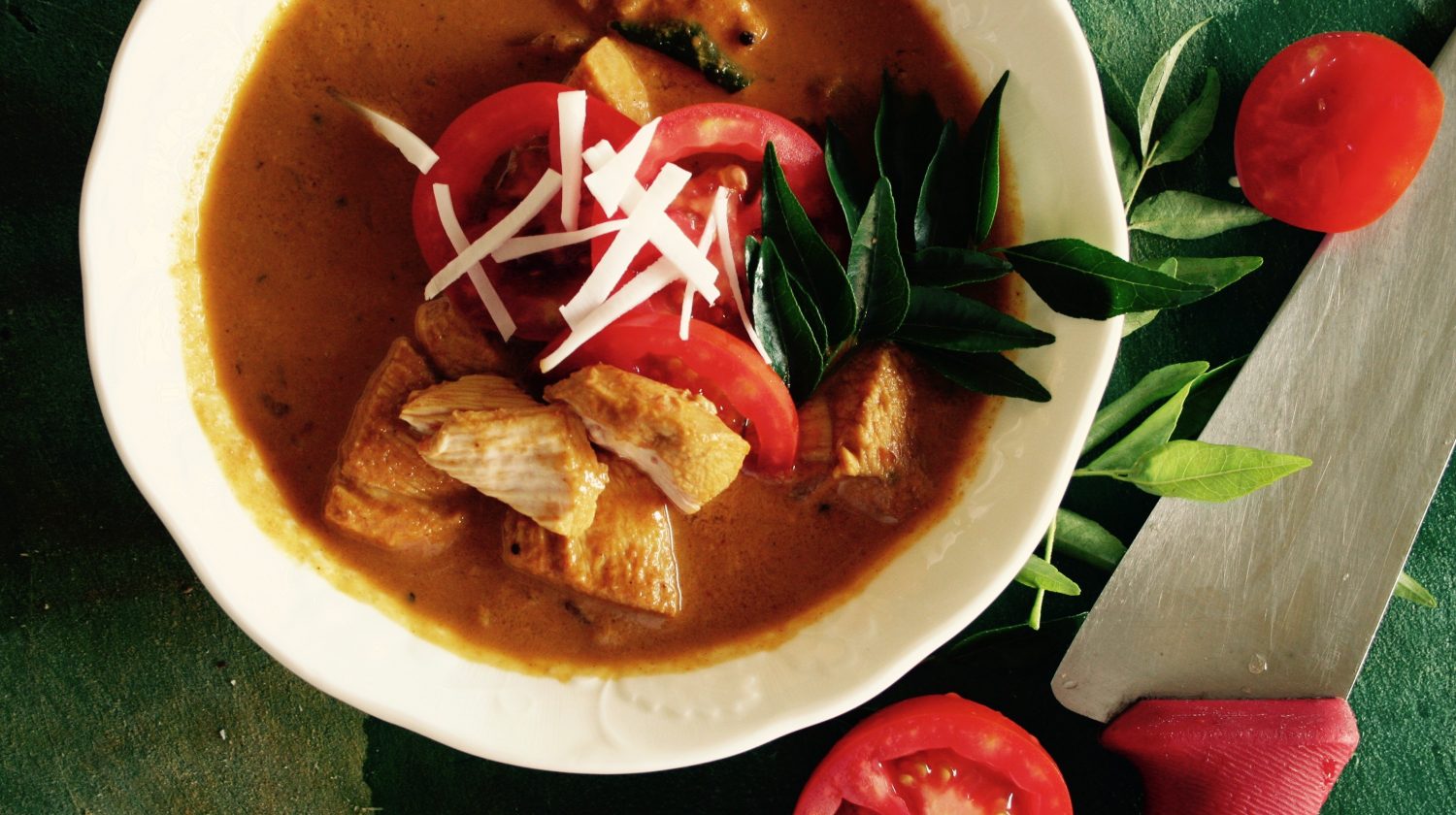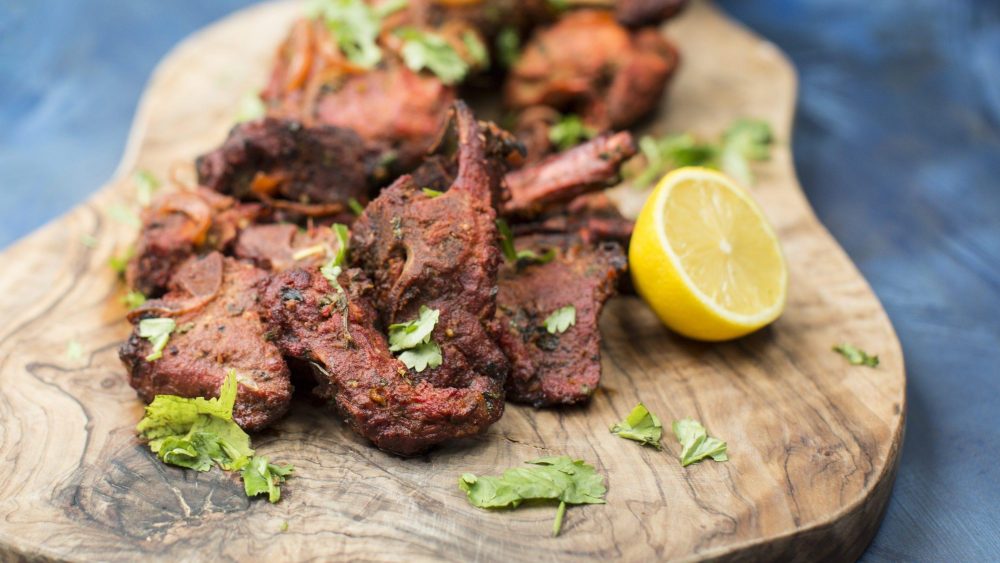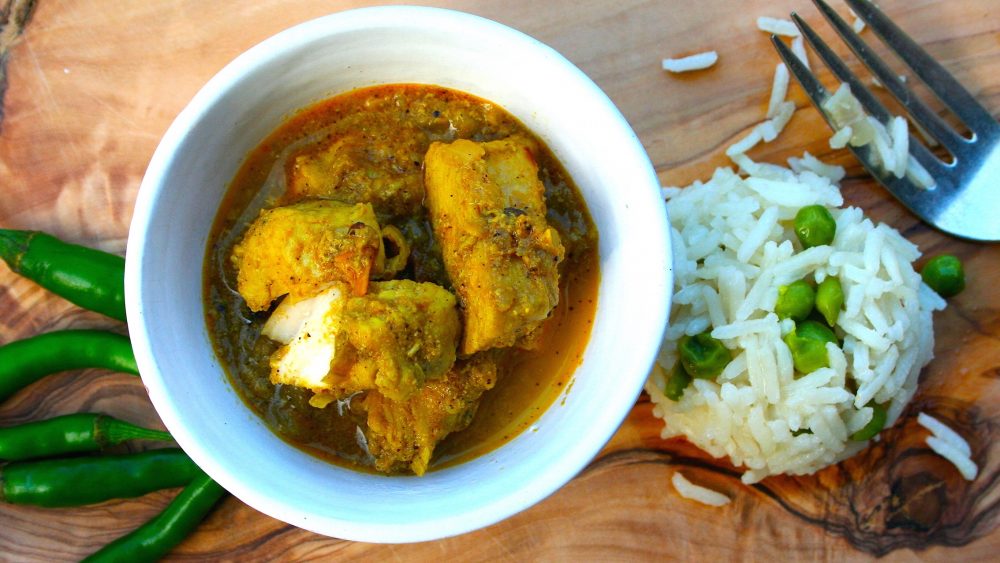
Malabar Chicken Curry
So how did Syrian Christians end up in Kerala? And what’s their connection with curry?
I know…these two questions along with ‘who’s Donald Trump’s hairdresser’ have been keeping you up at night as well.
Well I can’t answer the latter, but I do know that the Christian community in Kerala have been in existence since the 1st Century after St Thomas made his way to the southern coastline. Did they come from Syria? Actually they derive their name from the Christian order who took the Syrian Rite and form a small but tight knit community. Their number has dwindled in Kerala and Chennai but they maintain their religious identity and like the Parsi community in Mumbai they’ve created a cuisine which is almost sacred. One of the dishes this community is famed for is the fabulously named varutharacha kozhi (yep say it quickly and you might just get away with it), often simply referred to as Syrian Christian Chicken or Beef fry. My search for this Syrian Chicken Curry in Kerala led me to the fecundate hills of the Western Ghat mountain range high above the town of Munnar. My stay at the Spice Tree, a boutique eco hotel surrounded by wild lemon grass with heart breaking views afforded me the luxury of serenity.
Head Chef Anil John, took me through the recipe at lightning speed, whilst the list of ingredients may be daunting the result is smoother than a Rocker Billy’s quiff. It takes on the character of the Malabar coastline and its people, fragrant, charming, laid back and glossy.
Varutharacha Kozhi may be one of the longest named curries you’ll encounter, however your taste buds will transport you to a dish, which has lingered for centuries.
How To Make Syrian Christian Curry
Serves 2+
Dry Masala Fry
- 60ml coconut oil
- 8 shallots
- 6 garlic cloves, crushed
- 1 thumb of ginger, roughly chopped
- 2 tbs coriander seeds
- 1 tsp fennel seeds
- 2 whole dried red chillies
- 1 tsp black peppercorns
- 1 palmful of fresh curry leaves (or dried if you have to)
- 100g desiccated coconut
- Dash of salt
Poaching Masala
- 50ml coconut oil
- 1stp mustard seeds
- 6 shallots, finely sliced
- 2tsp garlic, chopped
- 2tsp ginger, chopped
- 1 green finger chilli, finely sliced
- 2 stems of fresh curry leaves
- ½ tsp turmeric
- ½ tsp garam masala
- ½ tsp chilli powder
- 1 tsp coriander powder
- Dash of salt
- 50 – 75ml water
- 400g boneless chicken thigh, diced
- 150ml coconut milk
Step 1 – Dry Coconut Masala
Using a skillet heat the coconut oil over a medium temperature and fry the shallots, garlic and ginger for 3-4 minutes until soft. Now add the fennel and coriander seeds, dried chilli, black peppercorns, curry leaves and coconut, turn the heat to low and turn infrequently. Gently sauté for 30 minutes or until the coconut and all the spices have tanned and perfume your kitchen. Decant and leave to cool. Now pulse in a blender to a fine paste and refrigerate for a couple of hours or ideally overnight. The flavours will intensify and the masala will look like the colour of treacle.
Step 2 – Poaching Masala
Using a wok or large frying pan, heat the coconut oil over a medium temperature and add the mustard seeds. Temper them for 30 seconds, add the shallots, garlic, ginger, chilli and curry leaves. Fry for a couple of minutes until thy yield their musk, then add the turmeric, garam masala, chilli powder, ground coriander, and salt. Stir well until all the ingredients are coated, tip in the chicken and then pour in 50ml water. Cook for 5 minutes, now add 3 tablespoons of the Dry Coconut Masala to the pan plus the remaining water, introduce the coconut milk and cook for a further 15 minutes until the chicken has cooked through and the gravy has become glossy.
Plate and serve with rice, garnish with a slice or two of tomato, sprinkle some coconut over the top and garnish with a curry leaf stem.








